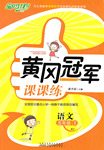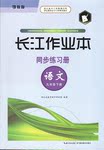
Tiantian is the oldest boy and is taller than ________ boy in the class.
[ ]
 黄冈冠军课课练系列答案
黄冈冠军课课练系列答案 长江作业本同步练习册系列答案
长江作业本同步练习册系列答案科目:高中英语 来源:广东省汕头市澄海中学2010届高三上学期期中考试英语试题 题型:050
| |||||||||||||||||||||||||||||||||||||||||||||||||||||||||||||||||||||||||
查看答案和解析>>
科目:高中英语 来源:2012届浙江省瑞安中学高三5月适应性考试英语试卷(带解析) 题型:阅读理解
When Chinese student Du Juan brought her American boyfriend home two years ago to use the toilet, her Japanese roommate became so upset that she shouted in English: "I hate you."
Du, then 21 and an undergraduate at Bridgewater State College in Massachusetts, was shocked. So was her boyfriend.
"Later I realized that she didn't literally mean what she said and that she was not aware of the full meaning of the word 'hate' in English," said Du. "It was more a problem with translation," she added.
Cultural differences can cause confusion about what words or even actions mean, an issue that has come to the forefront recently following the arrest of a Chinese doctoral degree student in New Jersey.
Zhai Tiantian, who studied at the Stevens Institute of Technology, has been accused of trying to set fire to a campus building and of making threats to a professor who gave him a low mark. No physical altercation took place but Zhai reportedly said something along the lines of "at worst, I will risk anything on the line." The professor called the campus police.
According to the indictment sheet(起诉书), Zhai is facing the serious charge of making a terroristic threat.
For a few days, Chinese media mistranslated, or misunderstood, the charges and reported that Zhai was being charged with terrorism.
Some language experts have speculated(推测) that the disagreement between Zhai and the professor can also be chalked up to cultural and linguistic differences. "What Chinese people regard as acceptable speech may be regarded by Americans as threats," said Luo Gang, the Chinese Consulate's Overseas Chinese Affairs consul. "This is an unfortunate incident. Even though Zhai intended no harm, he has done himself a great deal of harm."
Du, now 23, said she supports Zhai's actions in fighting to save his academic career, but added he needs to learn more about communication in a foreign language.
"Chinese students in a foreign country must prepare more in terms of languages and conversation skills to avoid misunderstandings," she said.
【小题1】What does the underlined word “altercation” mean?
| A.fight | B.check | C.education | D.experiment |
| A.Translation was not the real problem, as Du Juan and her roommate can both speak English. |
| B.Du Juan can not understand what her roommate meant at all. |
| C.Her roommate didn’t know what “hate” really meant in daily conservation. |
| D.Her roommate spoke such poor English that she felt angry. |
| A.He set fire to a campus building. |
| B.He argued with a professor because he received a low mark. |
| C.He has received a doctor’s degree at the Stevens Institute of Technology. |
| D.He is facing a serious charge because he murdered the professor. |
| A.Du Juan’s unpleasant experience abroad. |
| B.Confusion caused by translation. |
| C.Conservational skills in a foreign country. |
| D.Cultural differences between China and America. |
查看答案和解析>>
科目:高中英语 来源:2011-2012学年浙江省高三5月适应性考试英语试卷(解析版) 题型:阅读理解
When Chinese student Du Juan brought her American boyfriend home two years ago to use the toilet, her Japanese roommate became so upset that she shouted in English: "I hate you."
Du, then 21 and an undergraduate at Bridgewater State College in Massachusetts, was shocked. So was her boyfriend.
"Later I realized that she didn't literally mean what she said and that she was not aware of the full meaning of the word 'hate' in English," said Du. "It was more a problem with translation," she added.
Cultural differences can cause confusion about what words or even actions mean, an issue that has come to the forefront recently following the arrest of a Chinese doctoral degree student in New Jersey.
Zhai Tiantian, who studied at the Stevens Institute of Technology, has been accused of trying to set fire to a campus building and of making threats to a professor who gave him a low mark. No physical altercation took place but Zhai reportedly said something along the lines of "at worst, I will risk anything on the line." The professor called the campus police.
According to the indictment sheet(起诉书), Zhai is facing the serious charge of making a terroristic threat.
For a few days, Chinese media mistranslated, or misunderstood, the charges and reported that Zhai was being charged with terrorism.
Some language experts have speculated(推测) that the disagreement between Zhai and the professor can also be chalked up to cultural and linguistic differences. "What Chinese people regard as acceptable speech may be regarded by Americans as threats," said Luo Gang, the Chinese Consulate's Overseas Chinese Affairs consul. "This is an unfortunate incident. Even though Zhai intended no harm, he has done himself a great deal of harm."
Du, now 23, said she supports Zhai's actions in fighting to save his academic career, but added he needs to learn more about communication in a foreign language.
"Chinese students in a foreign country must prepare more in terms of languages and conversation skills to avoid misunderstandings," she said.
1.What does the underlined word “altercation” mean?
A. fight B. check C. education D. experiment
2.By saying “It was more a problem with translation”, what does Du Juan mean?
A. Translation was not the real problem, as Du Juan and her roommate can both speak English.
B. Du Juan can not understand what her roommate meant at all.
C. Her roommate didn’t know what “hate” really meant in daily conservation.
D. Her roommate spoke such poor English that she felt angry.
3.Which of the following statements about Zhai Tiantian is true?
A. He set fire to a campus building.
B. He argued with a professor because he received a low mark.
C. He has received a doctor’s degree at the Stevens Institute of Technology.
D. He is facing a serious charge because he murdered the professor.
4.What is the main idea of the passage?
A. Du Juan’s unpleasant experience abroad.
B. Confusion caused by translation.
C. Conservational skills in a foreign country.
D. Cultural differences between China and America.
查看答案和解析>>
科目:高中英语 来源: 题型:阅读理解
LV Tiantian, a graduate student majoring in ethics at Jiangsu University in Zhenjiang,has spent years reading Aristotle and Plato.She has debated with classmates about the meaning of “happiness” and in written papers about the role of morality in society.But as LV prepares to enter the professional world,she's finding that her background isn't getting her a lot of job interviews.“Employers do not seem to value the theories and philosophy that we liberal arts majors have learned,”said LV,24.“I earned far fewer interview chances than those majoring in more practical subjects in science and technology.”
According to a 2009 survey conducted by Zhongqing Shijia Survey Net and China Enterprise News,science graduates enjoy higher employment rates and salaries than liberal arts students do.Things aren't much different overseas.The New York Times reports that job listings for professors in English,literature and foreign languages dropped 21 percent for the 2008-2009 academic year-the biggest decline in 34 years.As a result,some American educators are calling for universities to abandon the “old Ivory Tower view of liberal education”.They want to put more emphasis on the practical and economic aspects of education.
Chinese educational experts tend to agree up to a point.But abandoning emphasis on the humanities altogether,they say,brings great risk.“The liberal arts do not generate any tangible(实体的)material wealth,but it does convey social values.And it passes spiritual heritage from one generation to another,”said Niu Dakui,an expert on education at Beijing Normal University.“If the humanities are discarded,our youngsters will lose their way.”
Anthony T.Kronman,a professor of law at Yale,goes even further.He argues that the greed,irresponsibility and fraud that put the world in the current financial mess will only get worse without a new emphasis on the humanities.In his view,this is the time to re-examine “what we care about and what we value”―something that the humanities” are extremely well-equipped to address”.
How this debate plays out may very well determine the future of Chinese high school education.Some people want high school students to be able to specialize in science during their high school years.Others think they should get a more rounded education with a substantial number of hours in the arts and humanities.
46.The example of LV Tiantian listed in first paragraph tells us that .
A.the current job market has been hard on students from the humanities
B.fewer employers want graduates with backgrounds in science and technology
C.more employers want graduates good at languages,literature and history
D.graduates find it hard to get job interviews,let alone a good job
47.According to the passage,that science graduates have a brighter future in their career than those majoring in humanities is .
A.a nationwide problem B.a worldwide phenomenon
C.an individual issue D.a regional matter
48.What does the underlined word “discarded” mean in the third paragraph?
A.adopted B.abandoned C.strengthened D.exchanged
49.Anthony T.Kronman points out that the root of the recent economical crisis is .
A.the poor economic reforms led by the government
B.the poor knowledge in finance taught by the university
C.the weakness in personality caused by lack of literature
D.the well-equipped schooling provided by the college
50.What is the best title for this passage?
A.The Meaning of “Happiness”
B.The Debate on Liberal Arts and Science
C.Job Chances and Major Subjects
D.Social Values and the Financial Mess
查看答案和解析>>
湖北省互联网违法和不良信息举报平台 | 网上有害信息举报专区 | 电信诈骗举报专区 | 涉历史虚无主义有害信息举报专区 | 涉企侵权举报专区
违法和不良信息举报电话:027-86699610 举报邮箱:58377363@163.com